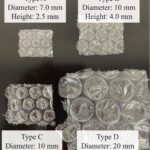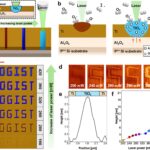In 2026, when Nigeria's new Tax Act (2025) comes into effect, the focus will be on capital gains tax, digital assets and compliance reforms. Beneath those headlines is a more radical change: Intellectual property (IP) is no longer an independent, abstract and unquestionable object, but an asset to be taxed, charged and audited.
This action is at least a formal recognition of the fact that in the modern economy, money is becoming less and less tangible. In the case of both entertainment and fintech businesses, their properties have become their most valuable assets, which are now under the Federal Inland Revenue Service (FIRS) scanner. Sections 4(b) and 4(j) deal with royalties and transactions on digital and virtual assets respectively, which are comparable with intellectual properties.
Section 4 of the new law broadens the definition of the term 'chargeable asset' to include intangible assets, corporate rights and digital assets. Capital gains tax (CGT) which previously applied to physical and financial assets now applies to IP sales, transfers and assignments.
For businesses, CGT can be up to 30 per cent, which matches corporate income tax. The detailed framework also applies to royalties and licensing fees as well as software rights, all of which are subject to taxation. In other words, innovation is now taxable.
Section 45 of the new law sets out the foundations of valuation, and this is currently the heart of valuation calculations. It is important that the parties know the true value of their assets, yet making a transaction, whether selling, transferring or licensing, the value associated with that asset is the determining factor of taxable profit or royalty income.
Also read: Inside Nigeria's new tax reform law: relief, risks and realities
Having a weak or no valuation can expose companies to greater risks, including being undervalued, resulting in audits, adjustments and fines, or being overvalued, which can result in increased taxable income and balance sheet misstatements. Lack of consistency in valuation may violate transfer pricing altogether and may be subject to investigation.
This is based on reliable, defensible IP valuation: fair market value of CGT, arm's-length pricing of the transfer in accordance with transfer pricing requirements, proper calculation of capital allowances, and safeguarding audit and documentation integrity.
The pursuit of codes, brands, trademarks, industrial designs, copyrights and patents, which generate real wealth, are no longer treated as tangible assets such as land and factories, plants and equipment, but are included in asset pursuits by the FIRS.
Most Nigerian companies consider IP as merely an expense they incurred or a return they did not receive. This can no longer be maintained under the new law. FIRS is now entitled to demand evaluation of royalty deals, IP disposals, or group restructurings.
MNCs with internal brand licensing or technology sharing arrangements are at maximum risk. In the absence of arm's-length valuation, intragroup royalties are subject to reassessment, and penalties are to be retroactively imposed.
Indirect transfer provisions now also apply to offshore share transfers of companies whose principal value is Nigerian IP.
ALSO READ: Nigerians to feel impact of new tax laws starting January 2026 – Oyedele
Sectoral implications for the operation of this new arrangement will include: Creative and technology: Record labels, film studios and software firms will need to value their IP portfolios to calculate royalty income and CGT exposure. Manufacturing and Pharmaceutical: Trademark and formula licensing agreements will need to be reevaluated at appropriate royalty rates. Financial Institutions: IP-based collateral can now be recognized subject to professional valuation. Professional Services: Alignment of methodology with international IP valuation standards should be undertaken by valuers, accountants and tax advisors.
Further efforts are needed to develop capacity to incorporate IP into Nigeria's tax regime. The Nigerian Institution of Estate Surveyors and Valuers (NIESV) should intensify its efforts in training and retraining on IVS 210 and IFRS 13 respectively.
The regulator, the Estate Surveyors and Valuers Registration Board of Nigeria (ESVARBON), should promote full adherence to international practice in the jurisdiction where the institution operates. There should be close collaboration between regulators, including NOTAP, FIRS, FRC and other professional bodies, to bring consistency in standards.
Boards of companies should not treat IP valuation as an additional task to be incorporated into their tax administration strategy. In IP-intensive businesses, valuation should be done at the time of acquisition, audited at least once every year, and whenever there is a transfer or licensing or restructuring.
The 2025 Tax Act passed in Nigeria has made one thing clear: it is time to eliminate intangible assets. Intellectual property has become a taxable, auditable and fundable asset.
The difference between compliance and risk, and opportunity and liability, is accurate assessment. Companies that adopt early will win investor confidence, will be more capital efficient and will not conflict with regulations.
In the modern economy, the measurable cannot be defended and certainly cannot be taxed appropriately.
Akinwunmi, a registered property surveyor and valuer who specializes in intellectual property valuation, writes from Lagos.











